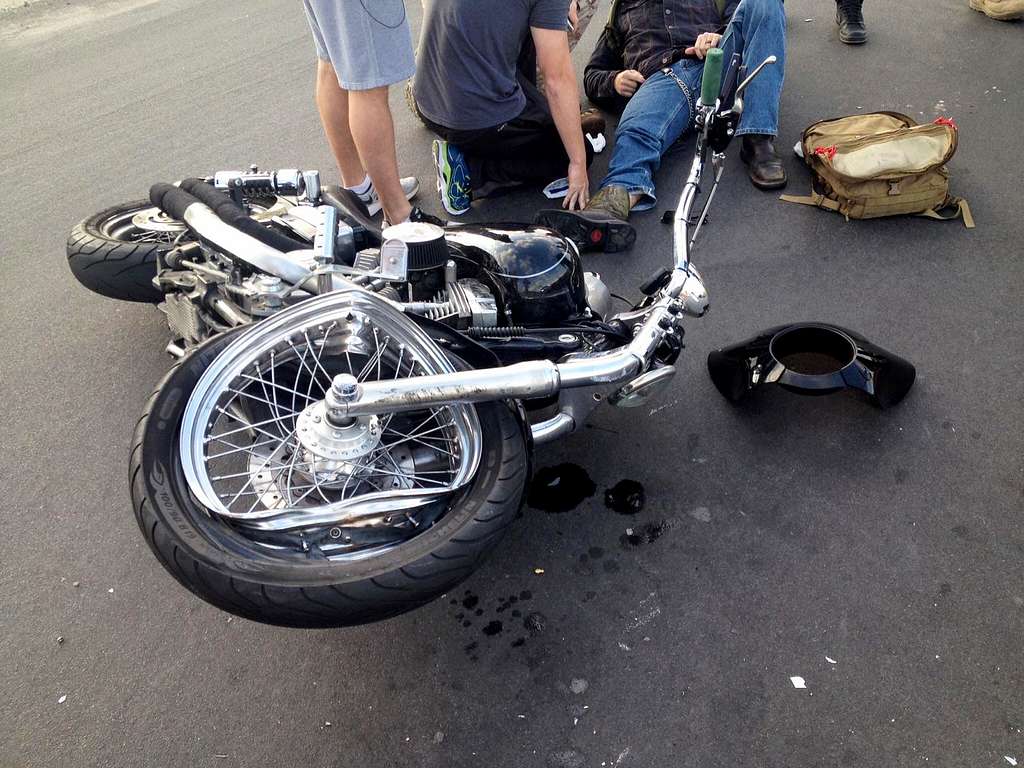The road to recovery after a motorcycle accident is filled with challenges, but it is also paved with opportunities for growth, healing, and renewed hope. You can turn a difficult experience into a story of triumph.
Motorcycle accidents can be life-altering, leaving survivors grappling with physical injuries, emotional trauma, and financial burdens. Yet, amidst the chaos, hope and healing are not just possible—they are attainable. This blog post aims to guide motorcycle accident survivors through the complex landscape of legal support, offering insights and practical advice to aid their recovery journey.
Understanding the Impact of a Motorcycle Accident
Motorcycle accidents often cause severe injuries due to the absence of protection. Common injuries include fractures, traumatic brain injuries (TBIs), and spinal cord injuries. These physical ailments are often accompanied by psychological challenges such as PTSD and anxiety.
The financial implications can also be overwhelming. Medical bills, rehabilitation costs, and loss of income contribute to significant stress. Understanding the full impact of a motorcycle accident is the first step toward seeking appropriate legal and medical support. Knowing what to expect helps in preparing for the road ahead, both emotionally and financially.
Knowing the Importance of Immediate Medical Attention
Obtaining immediate medical attention following a motorcycle accident is crucial. Even minor injuries can escalate if left untreated. Visiting a healthcare professional ensures that all injuries are documented, which is vital for any legal claims.
Medical records serve as crucial evidence when seeking compensation. They provide a detailed account of injuries, treatments, and the expected recovery timeline. This documentation is essential for both health recovery and legal proceedings. Ensuring that medical records are comprehensive and up-to-date can significantly bolster a legal case.
Navigating the Legal Landscape
The legal landscape following a motorcycle accident can be daunting. Understanding your rights and the steps to take is essential. From filing a police report to consulting with a legal expert, each step is critical in building a strong case.
A police report is an official record of the accident, detailing the events and parties involved. This document is often used as primary evidence in legal proceedings. Consulting a lawyer who specializes in motorcycle accidents can provide invaluable guidance. Legal experts can help in understanding the nuances of the case and the best course of action.
Choosing the Right Legal Representation
Selecting the right legal representation is a pivotal decision. A lawyer specializing in motorcycle accidents will have the expertise and experience needed to handle the intricacies of such cases. They can assist in gathering evidence, negotiating with insurance companies, and representing your interests in court.
An experienced attorney will also be familiar with the common tactics used by insurance companies to minimize payouts. They can counter these tactics effectively, ensuring that you receive fair compensation. Legal representation should provide both strategic and emotional support throughout the process.
Knowing the Role of Insurance Companies
Insurance companies play a significant role in the aftermath of a motorcycle accident. Understanding their function and how to interact with them is crucial. Insurance adjusters often aim to settle claims quickly and for the least amount of money. Being aware of this can help in navigating conversations and negotiations.
Documentation is key when dealing with insurance companies. Keeping detailed records of medical treatments, expenses, and communication with the insurer can strengthen your claim. Always consult with your motorcycle accident injury lawyer before accepting any settlement offers. This ensures that you receive a fair and just compensation.
Gathering Evidence for Your Case
Evidence is the backbone of any legal case. Gathering comprehensive evidence can significantly enhance the chances of a favorable outcome. Key pieces of evidence include medical records, police reports, witness statements, and photographic evidence of the accident scene and injuries.
Witness statements can corroborate your account of the accident, adding credibility to your claim. Photographic evidence provides a visual account of the accident and injuries, which can be compelling in court. Ensuring that all evidence is well-organized and readily accessible is essential for a strong legal case.
Understanding Compensation
Understanding the types of compensation available is crucial. Compensation can cover medical expenses, lost wages, pain and suffering, and property damage. Each type of compensation addresses a different aspect of the impact of the accident.
Medical expenses encompass all costs related to treatment, rehabilitation, and ongoing care. Lost wages cover the income lost due to the inability to work. Pain and suffering compensation addresses the emotional and physical distress caused by the accident. Property damage covers the cost of repairing or replacing your motorcycle. Knowing what compensation you’re entitled to can help in setting realistic legal goals.
Ensuring Your Long-Term Health and Rehabilitation
Recovery from a motorcycle accident is often a long-term process. Rehabilitation plays a critical role in restoring physical function and quality of life. Various forms of therapy, including physical, occupational, and psychological therapy, may be necessary.
A comprehensive rehabilitation plan should be tailored to individual needs, taking into account the severity of injuries and overall health. Regular follow-ups with healthcare providers ensure that recovery is on track and adjustments to the treatment plan can be made as needed. Emotional support from family, friends, and support groups also plays a crucial role in recovery.
Experiencing Emotional Healing and Support Networks
The emotional aftermath of a motorcycle accident is often as challenging as the physical recovery. Emotional healing is a vital aspect of the overall recovery process. Support networks, including family, friends, and professional counselors, provide essential emotional and psychological support.

Engaging in activities that bring joy and relaxation can aid in emotional recovery. For some, joining support groups where experiences and coping mechanisms are shared can be incredibly beneficial. Professional counseling can help address PTSD, anxiety, and depression, providing tools to manage emotional challenges.
Staying Informed About Legal Rights
Staying informed about your legal rights is crucial throughout the recovery process. Understanding changes in laws, insurance policies, and legal precedents can impact your case. Regularly consulting with your lawyer ensures that you are always aware of your rights and options.
Legal seminars, online resources, and community workshops can provide valuable information. Staying informed helps in making educated decisions and advocating for your rights effectively. Knowledge empowers you to take control of your recovery and legal proceedings.
Moving Forward With Hope
Moving forward after a motorcycle accident is a challenging yet achievable goal. Hope and healing go hand in hand, and both are attainable with the right support and resources. Legal support plays a significant role in this journey, providing the foundation for a secure and hopeful future.
The road to recovery after a motorcycle accident is filled with challenges, but it is also paved with opportunities for growth, healing, and renewed hope. You can turn a difficult experience into a story of triumph.
If you or someone you know has been affected by a motorcycle accident, don’t hesitate to seek legal and medical advice. Your path to recovery and a better future starts with informed decisions and the right support system.


Join the conversation!